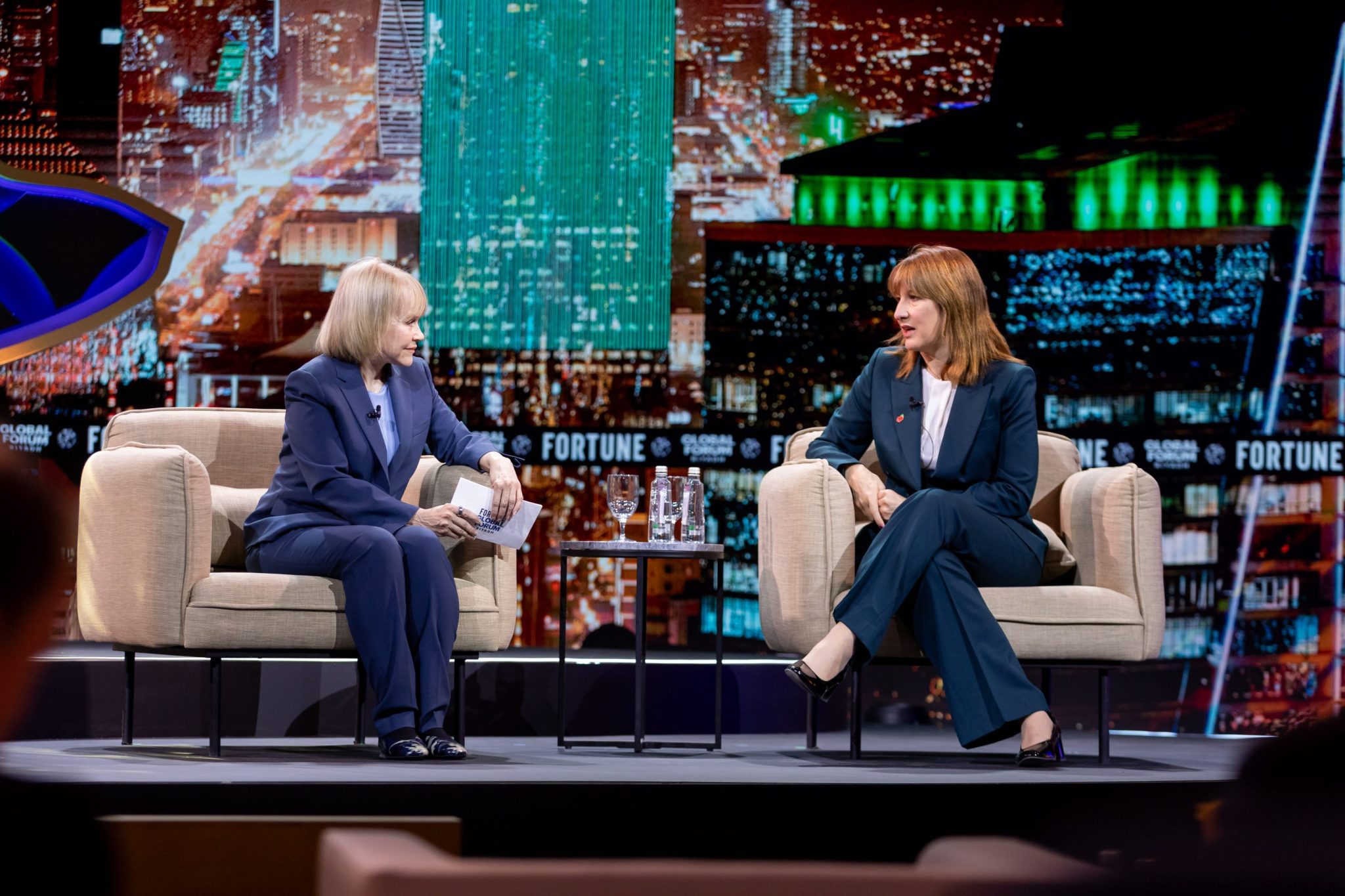
For many years, the U.S. and U.K. have lauded their “special relationship,” covering everything from trade to military support. This was exemplified with the first deal made following President Trump’s “Liberation Day” tariff announcement: The U.K. agreed to a 10% rate as well as a host of other export opportunities—much more lenient than many other countries.
Speaking at the Fortune Global Forum in Riyadh on Monday, U.K. Chancellor of the Exchequer Rachel Reeves said the current relationship between 10 Downing Street and the White House was built on a shared idea: concern over imbalances on the global stage.
Few other nations saw such success with the second Trump administration so quickly. The U.S. and China are still at loggerheads ahead of a planned meeting between the presidents later this week; agreements with Japan and the EU came later, after fraught negotiations.
Reeves said that the governments in London and Washington were collaborating at every level, noting: “We were very pleased to get the first trade deal with the U.S.”
The Labour MP added: “They’ve got concerns around global imbalances; we share a lot of those concerns, and I think building up personal relationships is something that Prime Minister Sir Keir Starmer has done incredibly well with Donald Trump, but also right through our government and their administration building up those relationships: myself with Scott Bessant; our business secretary with Howard Lutnick; but also the prime minister’s business advisor Varun Chandra, the work that he’s done both with Ambassador [Jamieson] Greer and with Howard Lutnick.
“I think relationships are important—whatever business you’re in, whether it’s business or politics—and it’s really important on the international stage.”
While President Trump’s “America First” agenda has been blasted by some of the U.S.’s key trading partners, the Parliament of Great Britain and Northern Ireland is no stranger to being unpopular after striking out alone.
Britain formally left the European Union in January 2020, after years of negotiating with the bloc following a 2016 referendum. It had been a member of the EU since the early 1970s.
As the world’s largest economy, America has significantly more leverage at the negotiating table. Even then, President Trump’s threat-and-retreat tactics have led markets—and foreign policymakers—to question the depth of the Oval Office’s conviction.
Indeed, Wall Street got so used to Trump’s deadlines being pushed back at the 11th hour it developed an acronym: the TACO trade (Trump Always Chickens Out). That has backfired at times. Trump has suggested buoyancy in the market (owing to analysts partially banking on the idea that tariffs won’t go ahead) is justification in itself to push ahead with the plans.
Reeves advised foreign governments looking to make a deal with Trump not to bet against him.
“[Take] them seriously,” she said. “That is absolutely key: engaging with their concerns about the world as it is today.”







